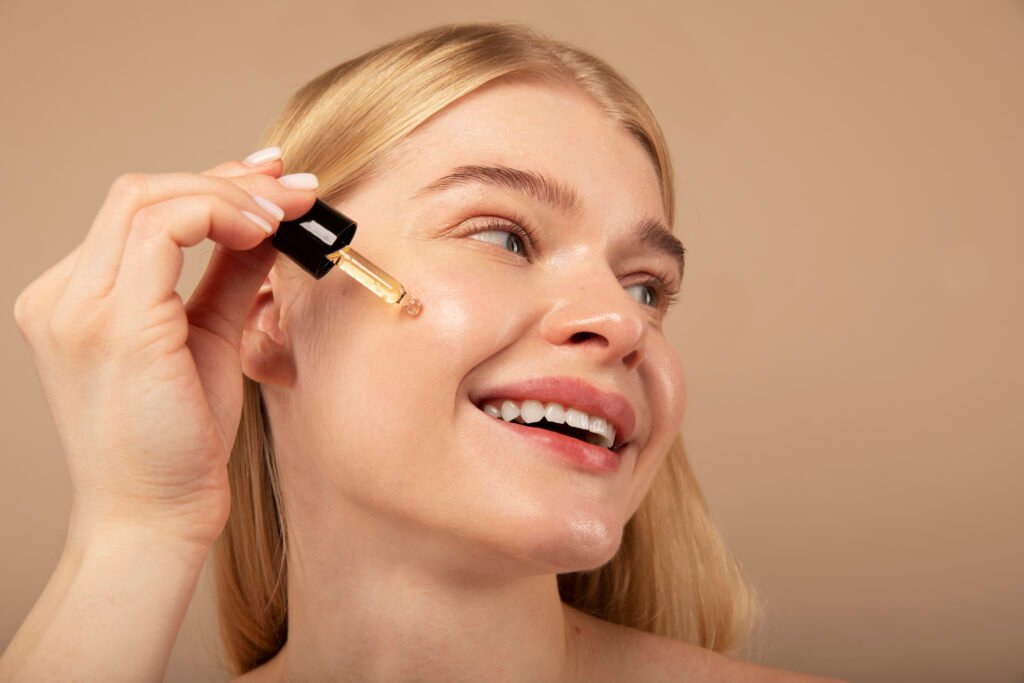Retinol Serum VS. Cream: Which Will Work Better for Your Skin?

At present, retinol has gained great popularity in the skincare world as the ultimate anti-aging ingredient. If you carefully look at the list of ingredients written on the packaging of your skincare products, you will see that many of them contain a small amount of retinol. Retinol is an extended form of Vitamin A, which is a very popular and effective ingredient in skincare. Many skincare experts call it the “gold standard.”
Retinol is available in two forms, serum and cream. But a widely asked question is retinol serum vs. cream — which is more beneficial for the skin? And what is the difference between retinol serum and cream? In this article, we will nicely explore which will be the best for your skin type, the differences between retinol serum and cream, and how you can use them in your skincare routine.
Retinol Serum and Cream: What is it?
Retinol Serum
Retinol serum is a skincare product in which the form of Vitamin A, retinol, is present in high concentration in liquid form. Because of its light texture, it easily absorbs into the deeper layers of the skin and can start working quickly. Retinol serum is highly effective in reducing fine lines and wrinkles and rejuvenating the skin.
Retinol Cream
Retinol cream is a skincare cream enriched with retinol, the derivative of Vitamin A, and moisturizing hydrating agents. It generally has a thicker texture compared to serum. It is used not only to reduce signs of aging on the skin but also to strengthen the skin’s protective barrier and prevent moisture loss.
If you want to know “How to Get Lighter Skin Naturally and Permanently,” then read this post.
Retinol Serum vs. Cream: What is The Difference?
The differences between retinol serum and cream generally depend on their formulation, effectiveness, and type of action.
Retinol Serum
- Has a lightweight texture and is quickly absorbed into the skin.
- Relatively more concentrated (potent), so it delivers faster results.
- More effective for spots, signs of aging, and acne.
- May cause slight stinging or peeling initially on dry or sensitive skin.
Retinol Cream
- Has a thicker and more moisturizing texture compared to serum.
- Milder than serum, so the skin tolerates it more easily.
- More suitable for sensitive or dry skin.
- Works gradually but reduces dryness and keeps the skin hydrated.
Retinol Serum vs. Cream Benefits
When using retinol for any skin problem, it not only solves the specific problem but also has many hidden short-term and long-term benefits. These also work to prevent future skin issues. When used in serum form, because of its light texture, it is quickly absorbed deep into the skin. And being relatively more concentrated, it is able to give results in a shorter time. It plays an effective role in reducing acne, spots, signs of aging, and uneven tone. On the other hand, retinol cream, having a thick and moisturizing texture, is especially suitable for dry or sensitive skin. It increases skin hydration, removes dryness, and nourishes the skin by strengthening its natural barrier. Though slower, it improves skin texture in the long term and removes the stresses of aging.
In short, if someone wants fast results, retinol serum is suitable, while retinol cream helps to maintain skin hydration and gives benefits gradually. Using both regularly reduces signs of aging, spots, and dullness, making the skin youthful, smooth, and radiant.
retinol serum vs. cream: Which One Should You Choose?
Whether you should use retinol serum or cream actually depends on your skin type and the specific skin concern you are targeting. Retinol serum is mainly used for faster results and is more suitable for those who are already accustomed to using retinol. On the other hand, retinol cream is used for gradually and gently addressing skin concerns, especially for beginners who want to avoid irritation.
If your skin is normal to oily and you want quick results, then you can choose retinol serum. Since the texture of serums is lighter, it absorbs quickly into the skin, and with higher concentrations of active ingredients, it works faster to reduce signs of aging, acne, or spots. However, during the first use, it may cause dryness or slight irritation. So, if you have dry or sensitive skin, your skin may experience irritation at the beginning.
On the other hand, if your skin is dry or sensitive, retinol cream is more suitable than serum. The texture of cream is thicker compared to serum, which helps retain moisture in the skin and reduces dryness. Although its effectiveness is slower than serum, But it is gentler on the skin and easier for beginners to use. If you want to reduce signs of aging while also providing nourishment and protection to your skin, then you can choose a retinol cream.
Can you use retinol serum vs. cream together?
Using retinol serum and cream together can cause burning or irritation on your skin. Retinol serum is more concentrated and works quickly, whereas retinol cream is comparatively milder and keeps the skin hydrated. Therefore, using both at the same time can often lead to problems such as burning, dryness, redness, or peeling.
However, here are 2 safe ways to use both products:
- Instead of using retinol serum and cream together, use them alternately. For example, use the serum on some days and the cream on other days.
- Or, after using the serum, apply a mild moisturizer, but do not use the retinol cream afterward.
- If you really want to use both together, start with a very low concentration and consult a dermatologist first.
